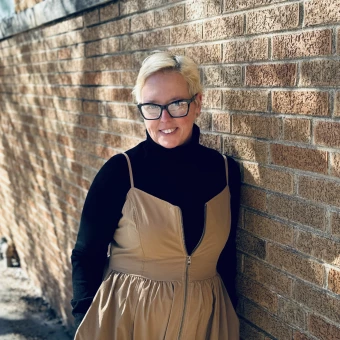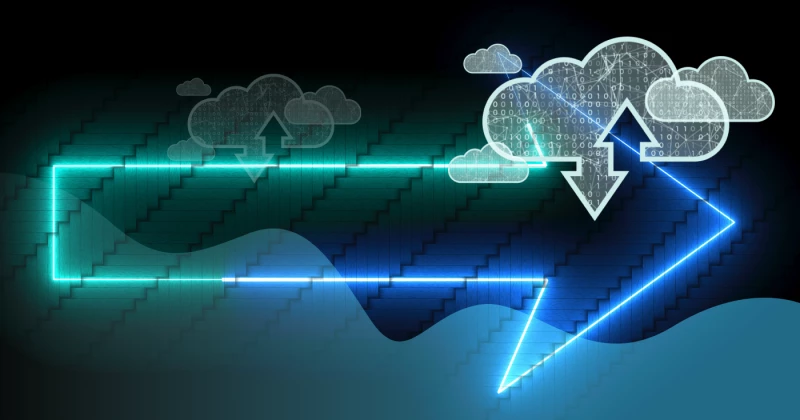City of Tempe’s Tarja Nummela shines a light on the positives of utility customer service & the power of thank you
At IUCX this week, we sat down with one of our very favorite customers, Tarja Nummela, Customer Service Manager with the City of Tempe, for her take on how the industry is really doing when it comes to customer care.
Tarja has been in the utility business her entire adult career after jumping right to a small private water utility after college graduation. While there, she learned all the operational ropes from how water lines are installed to the development of HR rules to ordering and supply management and even writing water line extension agreements.
While she didn’t really think about utilities when dreaming about work as a kid, she admits it has suited her quite well, and she loves being part of a team that provides an important service to people and communities.
So, all of Tarja’s insights here come from years of experience on the inside of a water utility.
ESC: We hear a lot of advice, a lot about what utilities are doing wrong or how they could do better, but what are utilities doing right when it comes to customer service? In what ways do you feel utilities are leading in this area?
TN: Utilities are empowering consumers; that’s the main takeaway—especially with the self-service tools available now.
Customers feel they have better control of their usage simply by being able to monitor it. It seems so simple, but it’s so effective. We’ve seen this firsthand at The City of Tempe, being one of the first Valley of the Sun cities to implement AMI. While doing that, we also provided customers a self-service portal.
Honestly, we get so much positive customer feedback about that—all the time. Of course, it’s a real money saver in the water business; so that helps. Who doesn’t love receiving a notification that could flag a leak before the huge bill comes—or just for peace of mind that there isn’t anything to worry about?
Many of our Arizona cities are just starting their AMI journey, and I always tell everybody: AMI is the game changer. Before AMI, we could only tell customers that something happened in the past month; now we can share data and tell exactly when the leak started.
Our customer service improved significantly with AMI implementation. So often people state AMI is a meter reading tool, but, to me, AMI is a customer service tool.
ESC: Tell us your personal favorite customer service story from your time at Tempe.
TN: I feel that each customer is unique, and we need to treat each one individually—even though we apply the same rules and standards evenhandedly to everybody.
But, despite the equanimity, there are always moments that rise up. One of the most touching connections was with a customer who had a high bill. The call was transferred to me. I talked with them quite a while, and we were able to conclude that she had a leak. And I was empowered to do a once-in-a-lifetime adjustment.
At Tempe, the policy is that all the water must be billed since it went through the meter, but in leak situations we can bill it at the lowest tier price, giving customer some relief. We also set customers on payment plans allowing some extra time to pay if an unusually high bill happens.
This customer was very grateful, and she called me each month to make her payments. I gave my direct number to her, and she even stayed in contact after the account was paid in full. A few years go by, and I get a final call from her—not about problems or leaks or billing. Instead, she called to tell me that she was no longer going to be our customer and wanted to thank for the great service she had received. Her daughter was taking over the account. But she wasn’t moving; she was terminally ill and had only limited time left. But, in that limited time, she took a moment to call to say goodbye because I was kind to her.
I felt very privileged to be on the receiving end of such gratitude. Sometimes the small actions we take to help somebody can leave a permanent impression on them. Treating customers with respect and listening to their concerns is, by far, the most important job we have.
ESC: We hear a lot about how utilities need to be more like Amazon in their approach to customers. Do you agree with that statement?
TN: On the use of technology for customer service, I do agree. Utilities need to embrace that and use it for operational improvements. (This goes back to my earlier discussion about empowerment tools and self-service.)
Whether we like it or not, consumers have become accustomed to services being available whenever they need help. That expectation is tough for utilities; most of us cannot have call centers open 24/7. But we can provide tools for our customers to find solutions even when our offices are closed. While utilities can never compete with Amazon, we can always drive to provide the best possible service and continue to improve services—and keeping an eye on consumer-based businesses like Amazon helps us plan for the next expectations of customers. And that knowledge is important for strategy planning.
ESC: How do you see utility customer service evolving over the next five years? The next decade?
TN: This is actually pretty easy to answer as we’re already seeing it: Most people do not want to call you. They don’t want to talk to a CSR. They want an online answer, an easy-to-find tool to look up problems themselves on their own turf, on their own time. So, call volumes will keep decreasing as we move to self-service, and those tools will continue to evolve with chatbots and AI functions.
But I want to stress this: Professional customer service personnel will always be needed; we must be available to those who do want to talk and for situations that are complicated and impossible for machine learning to unravel. And, in the end, you will always need a personal touch for this business; that will never go away.
Tarja Nummela is Customer Service Manager with Tempe, a city of 180,000 just outside Phoenix, Arizona. Connect with her on LinkedIn here. (Editor's note: As of summer 2025, Tarja Nummela is now retired from City of Tempe.)
The IUCX conference was May 6-8 in Phoenix, Arizona. Learn more about the show at their website here.
Related Content
-

How you can stop worrying (about implementation) & love cloud adoption
Our SMEs gives you seven steps to smooth the way.
-

Three lessons learned from pioneering Oracle CCS implementation in Brazil
Our VP of Latin America reveals insights from a recent project.
-

How to guide change management at your city or utility in 5 steps
Our execs share the secret to real change in your org.





